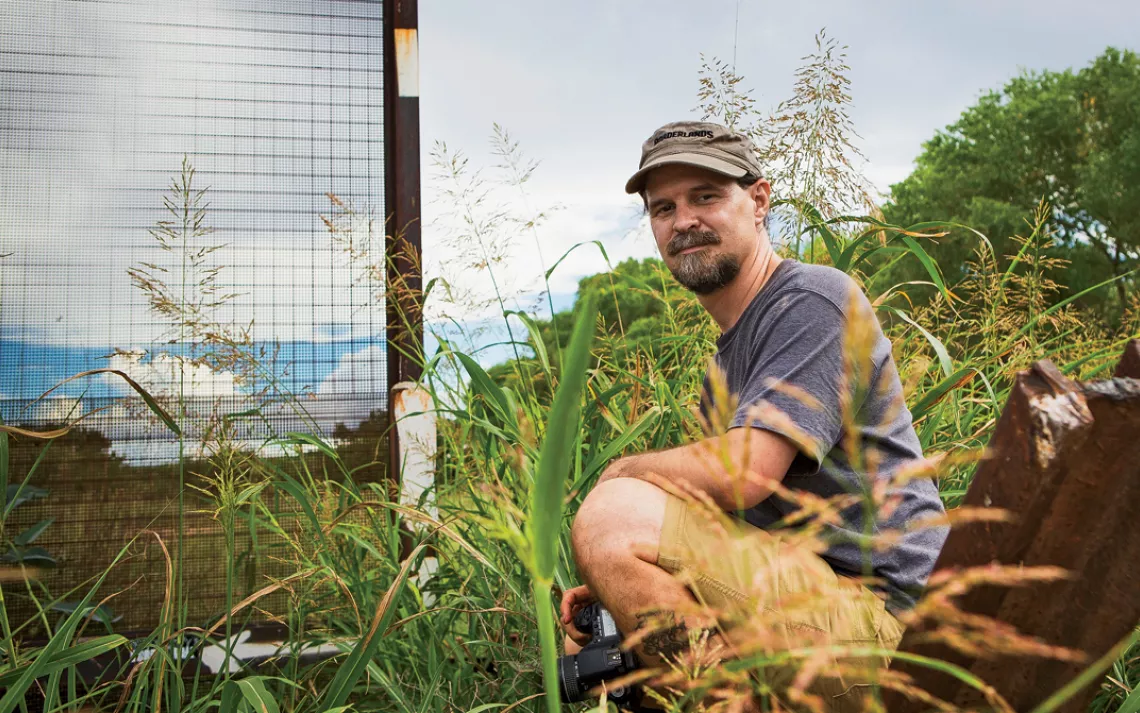Scott Nicol
Invading the Privacy of the People Who Make the Club Tick

Name: Scott Nicol
Location: McAllen, Texas
Contribution: co-chair, Sierra Club Borderlands Campaign
Website: sierraclub.org/borderlands
Unlike Sierra Club chapters, the Borderlands Campaign encompasses multiple states. How did it come about? We began when border walls started getting built in large numbers in 2008 and 2009. America's southern border is a little over 1,900 miles in four states, and there are now 652 miles of wall. Of that, 299 are vehicle barriers, 5 or 6 feet high. They're passable to animals. The rest of the mileage is pedestrian walls, 18 feet high.
What are the walls' environmental impacts? In South Texas, the wall was built through the Lower Rio Grande Valley National Wildlife Refuge, which is supposed to provide habitat for endangered ocelots. The wall chops up their habitat. You also get erosion. In California's Otay Mountain Wilderness Area, the terrain is so rugged that grading for the wall and patrol road sends sediment into the Tijuana River. And if there's a flood, you get what recently happened in Nogales [Arizona]: The wall clogged with silt and debris, and a 60-foot section blew out, sending a torrent downstream, doing a lot of damage.
Why is so much environmental damage allowed? In 2005, Congress gave the Department of Homeland Security authority to waive any local, state, or federal law that might slow down construction of border walls and patrol roads. In 2008, Homeland Security secretary Michael Chertoff waived 36 laws, including every major environmental law.
How much would it improve things if the waivers were revoked? It would be a start. Border projects would be on par with every other potentially environmentally destructive project. But walls don't work anyway. They don't stop immigration. Academic studies have shown this. The Border Patrol says it takes less than five minutes for someone to climb the wall. I've climbed it in less than a minute. Also, people go around them. That's why so many people are being funneled into the desert, which may take five days to hike, over rugged terrain. You can't carry enough water to do that. It's caused a huge number of deaths.
What's a real solution? Pass an immigration bill that doesn't include more walls and waivers and has a pathway to citizenship.
As long as the debate is so politicized, are environmental issues a lost cause? No. We've fought off proposed expansions of the waivers. But we haven't gotten the waivers rescinded or the walls torn down. That's going to take more time. But it's not a thing to give up on.
Photo by Krista Schlyer
 The Magazine of The Sierra Club
The Magazine of The Sierra Club



